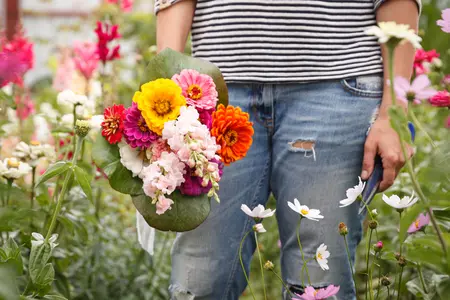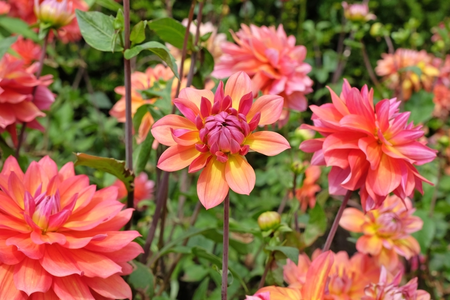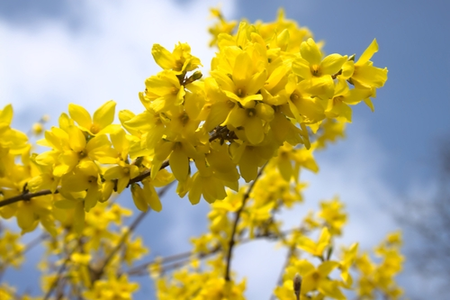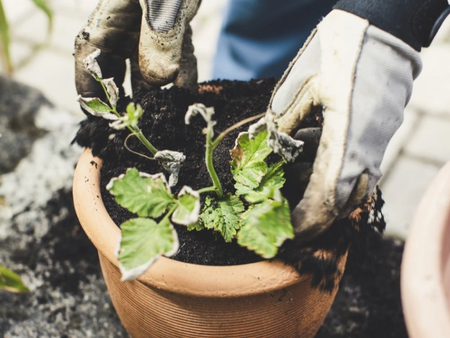
In July, the garden is in full swing, with flowers blooming everywhere you look and vegetable beds full of crops to be harvested. So please make the most of your garden this month with our top 15 gardening tips for July.
Top 15 gardening tips for July
-
Sow lettuce, rocket, cress, chard and sprouting seeds regularly for summer salads. Lettuce tends to bolt (i.e. go to seed) quickly in hot weather, so sow it where it will get some shade during the hottest part of the day.
-
If you've sown winter cabbages and leeks earlier in the year, transplant the seedlings now to their final positions.
-
Water vegetables regularly. It’s crucial to give tomatoes a consistent amount of water if possible, as the fruits will split if they get a sudden heavy watering after a dry period.
-
Feed tomatoes, courgettes, peppers and cucumbers fortnightly with a high potash liquid feed to promote flowers and fruit. Container-grown blueberries and gooseberries will also appreciate a fortnightly high-potash feed (tomato feed is ideal).
-
Pinch out sideshoots on cordon tomatoes (these are the little leafy shoots that appear where the leaf stems join the main stem).
-
Watch out for blossom end rot on tomatoes. This appears as sunken brown patches at the lower end of the fruit and means the plant isn’t getting enough calcium. Regular watering will usually solve the problem, although you will have to discard badly affected fruits.
-
Earth up maincrop potatoes to stop the light getting to them and turning them green and toxic. Harvest early potatoes in July, but dig up one or two first to check that they are big enough to harvest.
-
Pick courgettes and beans regularly to keep the plants producing more.
-
Deadhead roses and sweet peas, or cut the flowers for the house to encourage the plants to keep flowering.
-
Cut back faded perennials like geraniums for a second flush of flowers.
-
Give wisteria its summer prune, cutting back all this year’s long whippy shoots back to five or six leaves from the main stem.
-
Water in the mornings or evenings when it’s cooler to reduce water loss through evaporation.
-
Mow lawns regularly, but raise your mower’s blades during hot, dry periods to reduce stress on the grass. Try not to water your lawn in dry periods – it may go a bit brown, but it will bounce back as soon as the next rain arrives.
-
Feed your lawn with soluble or granular feed high in Nitrogen.
-
In hot weather keep bird baths regularly topped up for the birds and put out shallow water baths or saucers for hedghogs.
Whatever you’re doing in your garden this month, we’ve got everything you need at Lakeside.. So visit us today for all your gardening needs!







